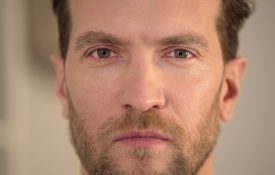-
Science Of Sadness And Joy: ‘Inside Out’ Gets Childhood Emotions Right
NPR: Hollywood's version of science often asks us to believe that dinosaurs can be cloned from ancient DNA (they can't), or that the next ice age could develop in just a few days (it couldn't). But Pixar's film Inside Out is an animated fantasy that remains remarkably true to what scientists have learned about the mind, emotion and memory. The film is about an 11-year-old girl named Riley who moves from her happy home in Minnesota to the West Coast, where she has no friends and pizza is made with broccoli. Much of the film is spent inside Riley's mind, which features a control center manned by five personified emotions: Joy, Sadness, Fear, Anger and Disgust.
-
In the digital age, every parent is now a filmmaker
The National: When the school year ends, students around the globe take to the stage for a curtain call. This theatrical metaphor is appropriate as the end of the academic year often takes the form of a show. Let me tell you about one such performance I recently attended: the year one farewell assembly at my daughter’s school in Abu Dhabi. The moment it began, parents became paparazzi. Almost the entire audience held smart phones or tablets aloft. There were even a few mums and dads wielding high-end digital cameras. These determined parents were indefatigable in their attempts to capture the perfect moment. ...
-
How to Be a Better Parent
Scientific American: God help me, being a parent is hard. It's not necessarily the basic Abraham Maslow's “hierarchy of needs” stuff that gets me, although providing for one's family is a daily pressure. No, what makes parenting so tough (at least for me) is the knowledge that I—quirky, flawed, only human me—am responsible for how my kids will “turn out.” There are 58,000 parenting books for sale on Amazon right now and thousands of parenting studies published every year. Sometimes I think I haven't read enough of them; other times I think I've read way too much. Either way, here are three bits of research-backed advice that have resonated with me recently. I hope they will help you, too.
-
Medical Resources Allocated Equally Across Groups, but More Efficiently Across Individuals
People make dramatically different decisions about who should receive hypothetical transplant organs depending on whether the potential recipients are presented as individuals or as part of a larger group, according to new research published in Psychological Science, a journal of the Association for Psychological Science. The findings show that when recipients are considered in groups, people tend to allocate organs equally across the groups, ignoring information about the patients’ chances of success.
-
Social Constraints Can Spark Creativity in Diverse Groups
It’s often assumed that creativity is unleashed by removing constraints, but new research finds that establishing clear expectations for social interactions actually encouraged creativity among mixed-sex work groups. A team of psychological scientists, led by Jack Goncalo of Cornell University, wanted to test whether a politically correct environment would dampen people’s creativity — or whether clear social boundaries would actually encourage diverse groups of people to share novel ideas.
-

Attention to Angry Faces May Predict Future Depression
Using eye-tracking technology, researchers have found that women with a history of depression tend to spend more time looking at the angry faces compared to women with no history of depression.

